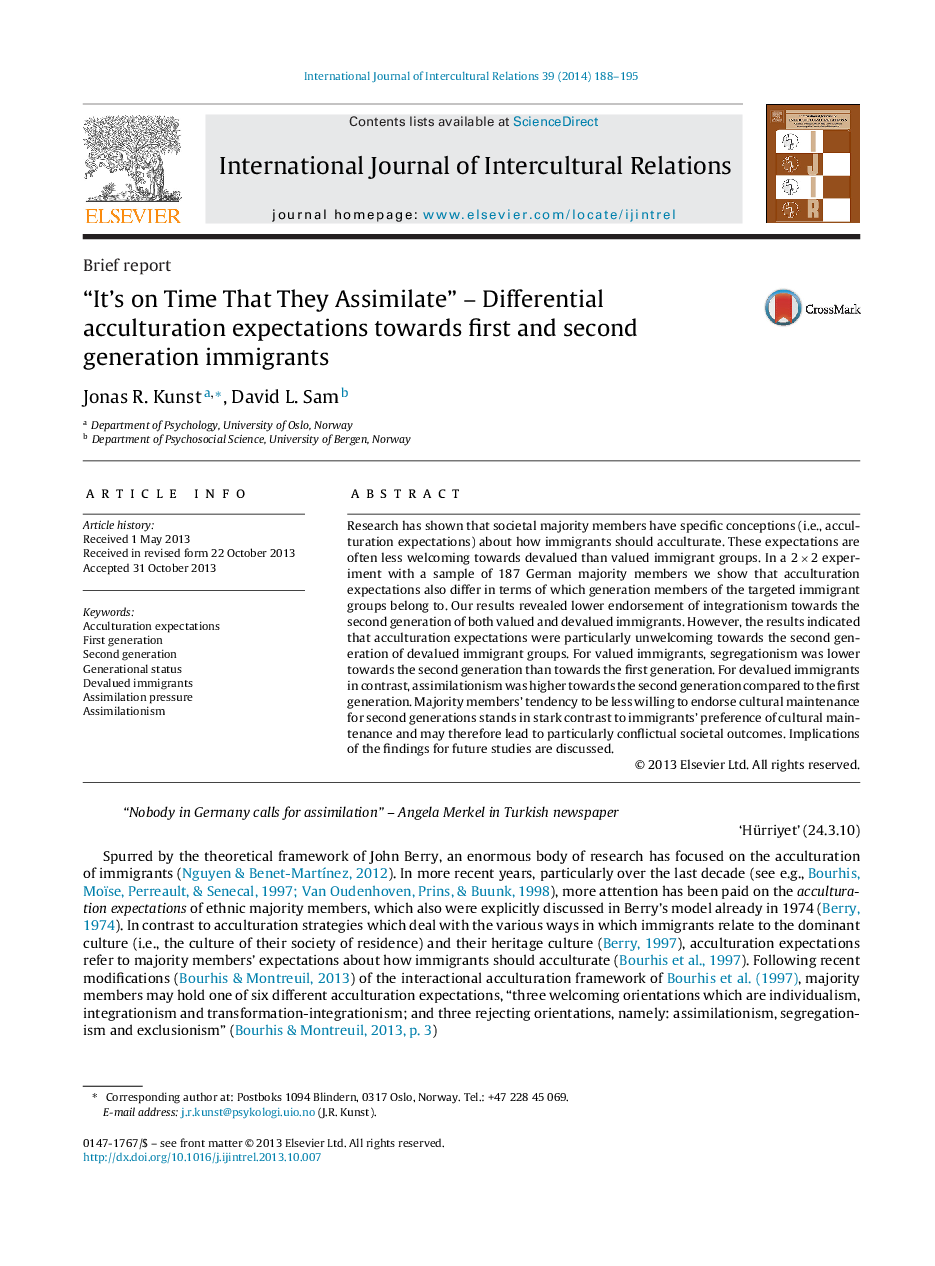| Article ID | Journal | Published Year | Pages | File Type |
|---|---|---|---|---|
| 947149 | International Journal of Intercultural Relations | 2014 | 8 Pages |
Research has shown that societal majority members have specific conceptions (i.e., acculturation expectations) about how immigrants should acculturate. These expectations are often less welcoming towards devalued than valued immigrant groups. In a 2 × 2 experiment with a sample of 187 German majority members we show that acculturation expectations also differ in terms of which generation members of the targeted immigrant groups belong to. Our results revealed lower endorsement of integrationism towards the second generation of both valued and devalued immigrants. However, the results indicated that acculturation expectations were particularly unwelcoming towards the second generation of devalued immigrant groups. For valued immigrants, segregationism was lower towards the second generation than towards the first generation. For devalued immigrants in contrast, assimilationism was higher towards the second generation compared to the first generation. Majority members’ tendency to be less willing to endorse cultural maintenance for second generations stands in stark contrast to immigrants’ preference of cultural maintenance and may therefore lead to particularly conflictual societal outcomes. Implications of the findings for future studies are discussed.
